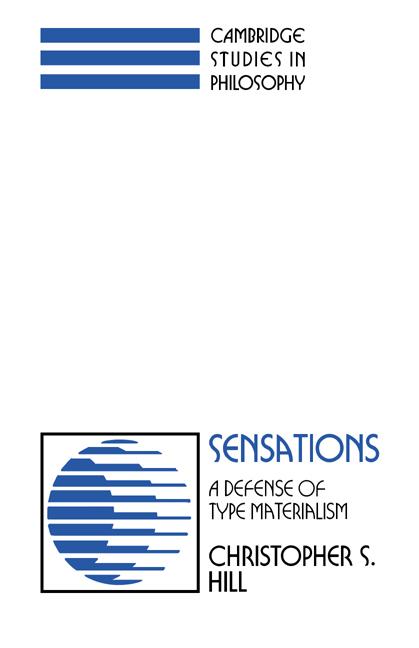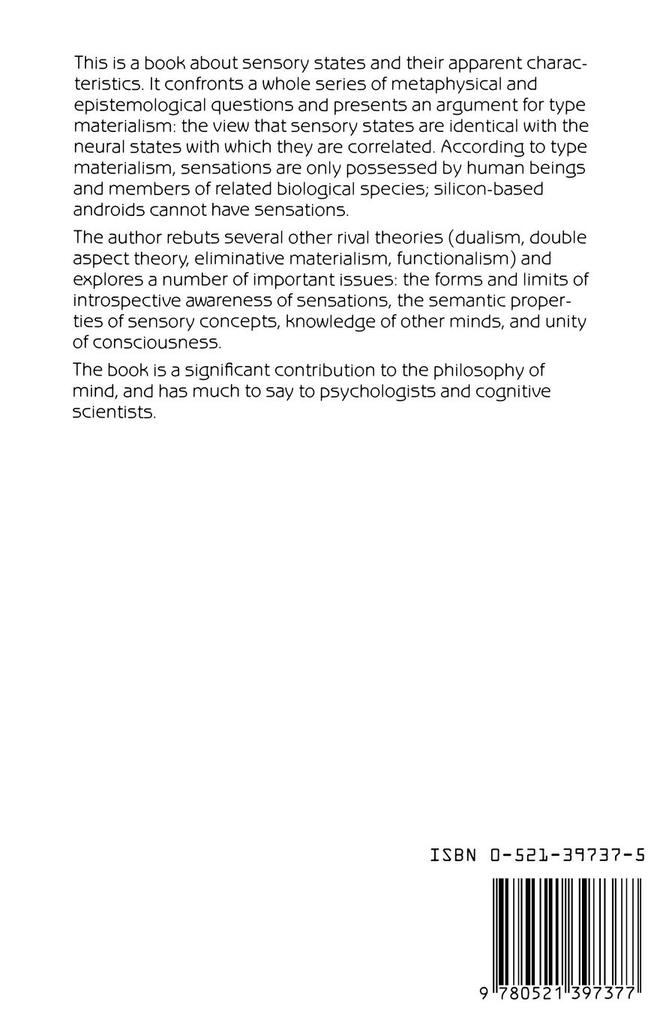"This is a fine book, one of the most valuable in philosophy of mind in recent years. Hill persuasively advocates type-materialism about sensations and defends it effectively against well known objections, with incisive rebuttals of other positions. He proposes distinctive theses that deserve attention, e.g. about the structure of sensation-concepts, about what is special about visual sensations, about the unity of consciousness. Absolutely first rate." Brian Loar, University of Southern California "The topic of this book belongs to what is usually thought of as the philosophy of mind, but it is very much the work of a metaphysician and logician. It is a pleasure to read a book in which an author who talks about 'functional roles' takes the trouble to say what ontological category these objects belong to and what individuates them. The thesis of this very closely reasoned and well-written book is that type-materialism is a viable theory, and in particular a viable alternative to functionalism. The book awakened me from what I imagine is a very common sort of dogmatic slumber: an unreflecttive acceptance of token materialism and functionalism." Peter van Inwagen, Syracuse University "The topic of this book belongs to what is usually thought of as the philosophy of mind, but it is very much the work of a metaphysician and logician. It is a pleasure to read a book in which an author who talks about 'functional roles' takes the trouble to say what ontological category these objects belong to and what individuates them. The thesis of this very closely reasoned and well-written book is that type-materialism is a viable theory, and in particular a viable alternative to functionalism. The book awakened me from what I imagine is a very common sort of dogmatic slumber: an unreflecttive acceptance of token materialism and functionalism." Peter van Inwagen, Syracuse University "The book is lucidly and elegantly written. It is full of crisply formulated, clear-headed, and provocative philosophical arguments...It is an important book, and should be essential reading for philosophers working on the issues it addresses." Terry Horgan, Memphis State University "This is a fine book, one of the most valuable in philosophy of mind in recent years. Hill persuasively advocates type-materialism about sensations and defends it effectively against well known objections, with incisive rebuttals of other positions. He proposes distinctive theses that deserve attention, e.g. about the structure of sensation-concepts, about what is special about visual sensations, about the unity of consciousness. Absolutely first rate." Brian Loar, University of Southern California













